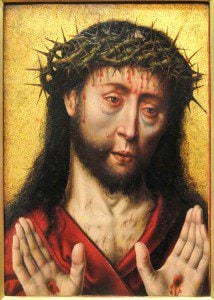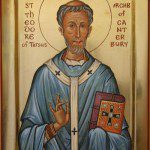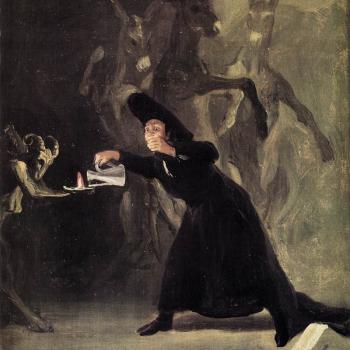“Ah, so much is said about human want and misery — I seek to understand it, I have also had some acquaintance with it at close range; so much is said about wasted lives…” – Søren Kierkegaard

Physician-Assisted Suicide (henceforth PAS) is hard to talk about for a variety of reasons, though chief among them proponents’ emphasis on autonomy. “It is my life, and so I may choose to end it when and how I wish,” or so goes a typical argument. Even well-known Christians, such as Hans Küng, have come out in favor of the practice. In our time, how can anyone compete with claims of autonomy? Don’t we all seek freedom, and desire the possibility of that freedom’s actualization? Who could be so callous as to deny someone his or her right to end his or her life?
For starters, me.
I do not think the question of PAS is predominantly one of autonomy, but instead one of cultural understanding, in fact, one of communal belonging and human initiation. The very framing of the question in terms of “rights” reveals how impoverished our discourse about dignity has become.
Many have turned to Brittany Maynard and her famous exhortation to let the terminally-ill, like herself, die, in order to validate their opinion. Equally compelling emotional narratives have come from the other side of the question, notably that of Philip Johnson, a Catholic seminarian also dying of terminal cancer. In this spirit and before getting to the meat of my point (and I’d call this a testimony and not an argument), I’d like to offer my own experience with the end of life. An issue so visceral for so many demands personal witness.
I watched my mother die, or more specifically I lived the experience of her wasting away over months and months. Her lung cancer caused her excruciating pain as she was reduced from among the most active people I have ever met (literally cleaning the entirety of our home every day) to laying half-conscious, babbling to herself on the couch I am sitting on as I write these words. To give but one example, I recall coming downstairs one morning to get ready for school. I found my mom, half of her body almost entirely limp, exhorting me to get my rear in gear (she would’ve been much more explicit, something like “or your ass’ll be grass”) so I wouldn’t be late. She’d had a stroke, but, determined as she was to live her life, she wouldn’t admit it; in fact, that morning she intended to go about her normal routine. At some point, my father was forced to sling her over his shoulder, throw her into the car, and drive her to the hospital, where, thanks to emergency surgery, she was saved from permanent brain damage. The surgery could’ve killed her or helped her; my dad chose, tearfully I imagine (they sent me off to school), to risk her death, and so she lived, only to die a few months later.
When she finally did pass away, withered, growling like an animal in those final death gasps we bourgeois people find it so distasteful to discuss, she was, in my mind, filled with as much dignity as the moment she was born. Her illness, in all its visceral horror (and I invite you to listen, sitting in the next room, as your mother babbles uncontrollably, losing control of her basic human functions), could not, and at no moment did, impinge upon her intrinsic dignity, what in my mind was her God-granted human loveliness and sweetness.
But this in and of itself is not an argument against PAS, precisely because I have kept the narrative focused on her and not on those around her, namely my father and I. I learned more from the experience of her wasting away than from any book, lecture, or homily I’ve encountered since (and as a PhD student that might be a self-disparaging claim). I witnessed my father care for a woman, an adult female, as she reverted to childlike bodily integrity; I watched as he, despite years of marriage and wearying rockiness, manifested an undeniable and over-aweing love that defies easy description and poetic evocation. Put simply, I experienced, even from two non-religious people, the sort of inspiring care and solidarity that is almost never demonstrated in the ease with which we inhabit day-to-day life. Suffering was my teacher, and a good one at that, an instructor who indicated for me just how terrifying the world is, and just what sort of love constitutes the appropriate response to that terror. To witness death and the love it engenders is an experience so overwhelming, I would consider myself blessed to have experienced it.
Had my mother chosen to kill herself, I would have been denied both a personal experience of growth and a symbolic indication of the nature of reality (the dynamic of suffering and loving). Had she chosen to end her own life, I would have had wool pulled over my eyes, a temporary veil to keep out the truth that is not only human mortality but human embodiedness. The world is a bloody, messy place, filled with the screams of the suffering. I had felt a tinge of this when I myself was diagnosed with Crohn’s Disease a few years earlier, when I temporarily lost my ability to walk, and experienced excruciating pain and “inconvenience” (a silly term) for months on end, but I only felt the fullness of its truth when my mother passed. Yet, it is more than just suffering; it is also the radical love that comes out to meet and soothe that pain.
The reality is that only in the experience of suffering with and alongside her did I come to recognize the world in all its horror and its beauty, its pain and its love. To suffer is to be redeemed, both personally and for one’s loved ones and family members.
And that is the truth of what I learned from her slow, painful passing: our lives are not our own; autonomy is not the central question. Each of us belongs to a constellation of other people whose lives, experiences, and practices are shaped by our own and by whom we are shaped. My mother’s life was not her own with which to dispense. In doing so, she would have denied me, my father, and countless others in her life an invitation to learn from the reality of suffering and from the beauty of love that accompanies it. Some of my fondest memories stem from being with my mother in her sickness, even when she could no longer understand or respond to me. In truth, her death has acted as a lens through which I understand her own life and thereby the world; it has made robust my own existence, influenced my conversion, and made me open to the love of my fellow man. Had she taken her life as her own, she would have denied a visceral wisdom to so many others in the name of an imagined dignity, a dignity she held inside all along.
In truth, there are many reasons to oppose PAS. I worry about a culture that so marginalizes and forgets the most vulnerable (the unborn, the poor, the sickly, and the elderly) that it allows (even encourages!) recourse to abortion, PAS, and euthanasia. With disability-rights’ advocates, I worry what such practices might mean for our understanding of the disabled, for how we understand “life,” and its more mysterious cousin “existence.” I also wonder how people can forget how cultural practices influence personal ones. In other words, to say that PAS is okay is, tacitly, to encourage it, to devalue the disabled, to prize the healthy over the suffering, and to cast shadow (and in the name of light!) on those whose lives most clearly testify to the nature of love in the world (hint: this might be why we love martyr narratives so much, secular and religious).
And while all of those concerns move me, here I am focused on the personal; I have sought to keep my mother’s memory alive and, in doing so, to demonstrate how her suffering, her embrace of the radical hopelessness of a slow death, has influenced and motivated me, my family, and my mother’s many friends and other loved ones. As my words defy me, I turn to those of the poet’s, to that most beautiful poem about the icon that is end-of-life care, Galway Kinnell’s “Parkinson’s Disease”:
She takes him then to the bathroom,
where she lowers his pants and removes
the wet diaper and holds the spout of the bottle
to his old penis until he pisses all he can,
then puts on the fresh diaper and pulls up his pants.
When they come out, she is facing him,
walking backwards in front of him
and holding his hands, pulling him
when he stops, reminding him to step
when he forgets and starts to pitch forward.
She is leading her old father into the future
as far as they can go, and she is walking
him back into her childhood, where she stood
in bare feet on the toes of his shoes
and they foxtrotted on this same rug.
I watch them closely: she could be teaching him
the last steps that one day she may teach me.
At this moment, he glints and shines,
as if it will be only a small dislocation
for him to pass from this paradise into the next.













